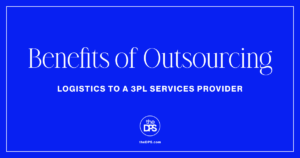Expanding your business into international markets can be an exciting yet daunting endeavor. With careful planning and execution, you can ensure a seamless transition and maximize your chances of success. This blog post provides comprehensive strategies to guide you through the complexities of relocating your business internationally.
We will cover essential considerations such as legal and financial matters, cross-cultural training and communication, supply chain management and logistics, IT infrastructure and data security, and employee relocation and support. By addressing these key areas, you can navigate the challenges of international expansion and achieve your global growth goals.
Legal and financial considerations
Relocating a business internationally involves navigating a complex landscape of legal and financial considerations. Understanding and complying with local laws and regulations is paramount to ensure smooth operations.
This includes regulations pertaining to employment, taxation, and intellectual property rights. Additionally, businesses must adhere to international trade agreements and regulations, such as customs and export controls, to avoid potential disruptions and penalties.
Establishing a legal entity in the new country is another crucial step. This could involve setting up a branch office or a subsidiary, depending on the business structure and objectives. Compliance with local corporate governance requirements is essential to maintain legal standing and avoid legal complications.
Financial management is a critical aspect that requires careful attention. Businesses must develop a robust system to manage currency fluctuations, international payments, and tax obligations. Partnering with local legal and financial advisors is highly recommended to ensure compliance and make informed decisions. These advisors can provide invaluable guidance on navigating the intricacies of the local legal and financial landscape.
By addressing these legal and financial considerations, businesses can establish a solid foundation for their international operations, mitigate risks, and position themselves for success in the global marketplace.
Cross-cultural training and communication
are essential for a smooth transition when relocating a business internationally. Cultural awareness workshops can help employees understand the local culture, customs, and business practices, reducing the risk of misunderstandings and conflicts. Language training is crucial for effective communication with customers, suppliers, and employees in the new country. Communication strategies should be developed to ensure that messages are conveyed clearly and appropriately across different cultures. Establishing clear expectations and guidelines for communication can help avoid misunderstandings and misinterpretations. Encouraging open dialogue and feedback allows for continuous improvement and adaptation to the new cultural environment.
By investing in cross-cultural training and communication, businesses can foster a positive work environment, build strong relationships with local stakeholders, and ensure effective operations in the new international location. This can contribute significantly to the overall success of the business relocation and help achieve the desired global growth goals.
Supply chain management and logistics
When relocating a business internationally, supply chain management and logistics become critical factors in ensuring a seamless transition and continued operational efficiency.
Here are some key considerations to keep in mind:
1. Evaluating and Optimizing Existing Supply Chain: Assess your current supply chain to identify strengths, weaknesses, and potential vulnerabilities. Determine the impact of the international move on lead times, inventory levels, and transportation costs. Consider optimizing your supply chain by diversifying suppliers, establishing strategic partnerships, and implementing technology solutions for efficient tracking and monitoring.
2. Researching and Establishing Local Suppliers: Conduct thorough research to identify reliable and reputable local suppliers in the new country. Consider factors such as product quality, pricing, delivery capabilities, and cultural compatibility. Establish strong relationships with these suppliers to ensure a consistent supply of goods and services.
3. Developing Contingency Plans: Develop comprehensive contingency plans to address potential disruptions in the supply chain, such as natural disasters, political instability, or trade restrictions. These plans should outline alternative sourcing options, inventory management strategies, and communication protocols to minimize the impact on your business operations.
4. Implementing Robust Inventory Management Systems: Implement robust inventory management systems to ensure optimal stock levels, reduce the risk of stockouts, and minimize inventory carrying costs. Utilize technology solutions for real-time inventory tracking, forecasting, and replenishment to maintain efficient supply chain operations.
5. Considering International Trade Agreements and Regulations: Familiarize yourself with the international trade agreements and regulations that govern the import and export of goods and services in the new country. Ensure compliance with customs regulations, tariffs, and other trade-related requirements to avoid delays and penalties.
IT infrastructure and data security
. This involves assessing and complying with local data protection laws and regulations to safeguard sensitive information. Implementing robust cybersecurity measures is essential to protect against cyber threats and data breaches. This includes employing firewalls, intrusion detection systems, and encryption technologies.
Establishing secure remote access protocols for employees ensures authorized access to company data while minimizing security risks. Collaborating with local IT providers can provide valuable expertise and support in navigating the technological landscape of the new country.
By addressing these considerations, businesses can ensure the integrity and security of their IT infrastructure and data, enabling a seamless transition and continued operational efficiency in the international market.
Employee relocation and support
When relocating a business internationally, it’s crucial to prioritize employee relocation and support to ensure a smooth transition for your team. Providing comprehensive relocation packages that cover expenses such as transportation, housing, and visa processing can help ease the financial burden and reduce stress for employees. Additionally, offering cross-cultural training and language support can help employees adapt to the new cultural environment and communicate effectively with colleagues and clients.
Establishing a support network for employees can be invaluable during the relocation process. This can include creating mentorship programs, providing access to counseling services, and organizing social events to help employees connect with each other and build a sense of community. Finally, developing clear policies and procedures for employee relocation can ensure a consistent and fair process, while also addressing any concerns or issues that may arise.
By taking these steps, businesses can provide their employees with the necessary support and resources to successfully navigate the challenges of relocating to a new country, fostering a positive work environment and maintaining employee morale during this transition.





